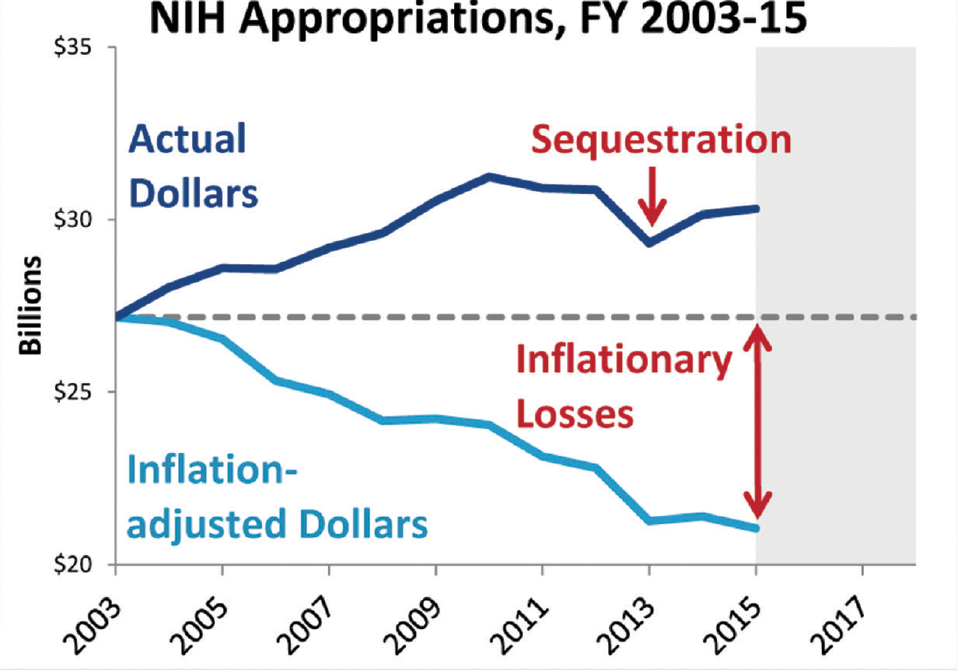Fewer surgeons perform research today, as compared with numbers from a decade or so ago. According to the American Association of Medical Colleges, although 45% of graduating medical students aspire to work in an academic setting, only about 16% will do so. Of those who do work in academic settings, up to 38% will leave academia within 10 years.
Explore This Issue
September 2017There are many reasons for this, but lack of funding tops the list. “Funding to surgeons has been steadily decreasing,” said Sundeep Keswani, MD, surgical director of basic science research at Texas Children’s Hospital in Houston and a co-author of an Annals of Surgery article that identified barriers to success for surgeon scientists (Ann Surg. 2017;265:1053–1059). “The National Institutes of Health (NIH) has had a stagnant budget for the last 15 years, and surgeons have had a significant reduction in overall funding from the NIH, which has been disproportionately decreased compared with their medical colleagues,” he added (see Figure 1).
Allan M. Goldstein, MD, professor of surgery at Harvard Medical School, chief of pediatric surgery at Massachusetts General Hospital, and a co-author of the Annals of Surgery article, believes that the NIH and other funding agencies may look less favorably upon surgeons because they assume that surgeons commit less time to science than non-surgeons.
Dr. Goldstein also said that obtaining a grant now requires applying much more frequently, because rejection is commonplace. “Surgeons don’t seem to apply for as many grants as non-surgeons, which is problematic given the frequency of rejection,” he said. “Some surgeons give up or are discouraged by low funding rates.”

(click for larger image) From 2003 to 2015, the NIH lost 22% of its capacity to fund research due to budget cuts, sequestration, and inflationary losses. Reduced funding capacity resulted in fewer grants, fewer discoveries, and scientists leaving the field of research.
Source: NIH
He also believes that many surgeons lack the necessary mentorship to help them secure funding. “Surgeons can fall back on clinical work, so when getting funding is tough, it is easier to give up and simply be a surgeon,” Dr. Goldstein said.
Different Skill Sets
Clinical research requires substantial and specialized training from both practice and compliance standpoints. “A lack of training and focus on the skill sets needed to carry out significant and scientifically valid research could deter surgeons from pursuing this avenue,” said Kurt Amsler, PhD, associate dean of research and professor in the department of biomedical sciences at the NYIT College of Osteopathic Medicine in Old Westbury, N.Y.